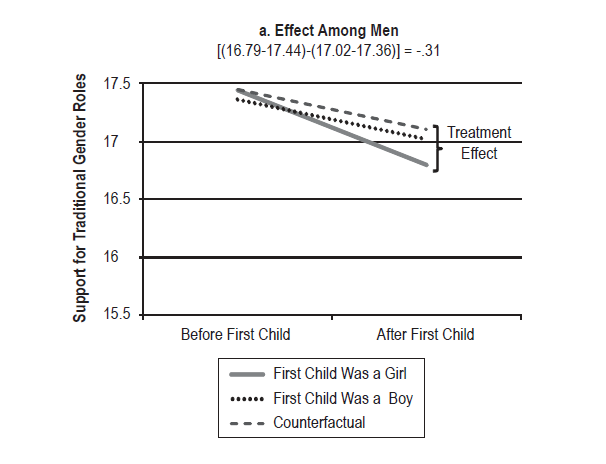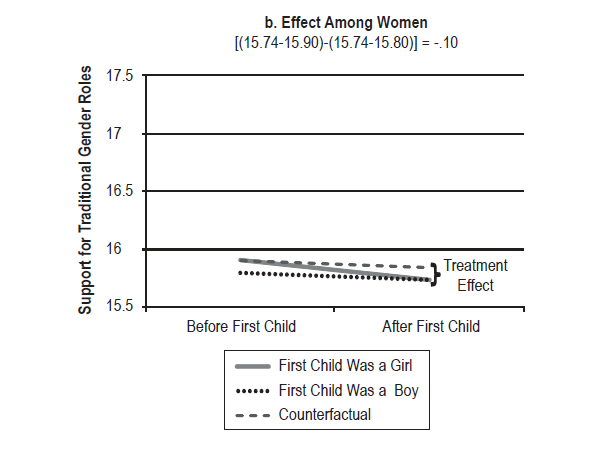Rumor had it Jay-Z was going to stop calling women bitches after the birth of his daughter, Blue Ivy. Though it wasn't actually true, a new study says his alleged change of heart wouldn't be particularly surprising. According to research by sociologists Emily Shafer and Neil Malhotra, men who have daughters are more likely to let go of traditional gender roles.
Shafer and Malhotra set out to measure how new babies impact their parents' attitudes about societal norms for boys and girls. The surprising part of their results: New dads tended to let go of (some) gendered expectations after having daughters, but the same statistically significant effect was not found among new moms.
"The biggest takeaway is that we're seeing an effect among men and not among women," Shafer told The Huffington Post. "Prior research ... just looked at correlations and found this effect among mothers and fathers."
Published in the journal Social Forces, the study used data from the National Longitudinal Survey of Youth (NLSY79), which followed 12,686 young men and women from 1979, when they were between the ages of 14 and 21. The participants were interviewed annually until 1994 and are still interviewed every-other year, and in '79, '82, '87 and 2004, they were specifically questioned about their views on gender roles.
Participants were asked whether they "strongly agree," "agree," "disagree" or "strongly disagree" with eight different statements:
1. A woman's place is in the home, not in the office or shop.
2. A wife who carries out her full family responsibilities doesn't have time for outside employment.
3. A working wife feels more useful than one who doesn't hold a job.
4. The employment of wives leads to more juvenile delinquency.
5. Employment of both parents is necessary to keep up with the high cost of living.
6. It is much better for everyone concerned if the man is the achiever outside the home and the woman takes care of the home and family.
7. Men should share the work around the house with women, such as doing dishes, cleaning, and so forth.
8. Women are much happier if they stay at home and take care of their children.
Shafer and Malhotra then compared the attitudes of mothers and fathers of baby boys and baby girls. The chart below illustrates the significant decrease in men's support for traditional gender roles after having a daughter.

The second chart shows that a lack of change occurs around these issues for women. However, Shafer pointed out that women start off supporting traditional gender roles less than men do.

There are a few hypotheses about why this phenomenon occurs, one being as simple as exposure to gender-based discrimination. "Women are [already] exposed to [things like] workplace discrimination," said Shafer. "A man may have noticed these issues a lot less, but when he has a daughter he may witness them more."
Another theory revolves around self-interest -- women are inevitably more personally invested in a greater diversity of opportunities for women, such as the chance to choose whether or not to stay at home with the kids or work full-time, or the ability to ask one's male partner to contribute to the housework. Yet, when men have baby girls, their daughters' self-interest may become their own. Dads may not want to see their children denied the opportunity to advance in the workplace in the future because they were "mommy-tracked" or marry a man who puts his own passions above hers.
Ultimately, the subject merits more research. "You can also ask the question, why are [attitudes] not changing more?" said Shafer. "Why do we have these traditional ideas about gender and why [are] people ... holding onto them so strongly still?"